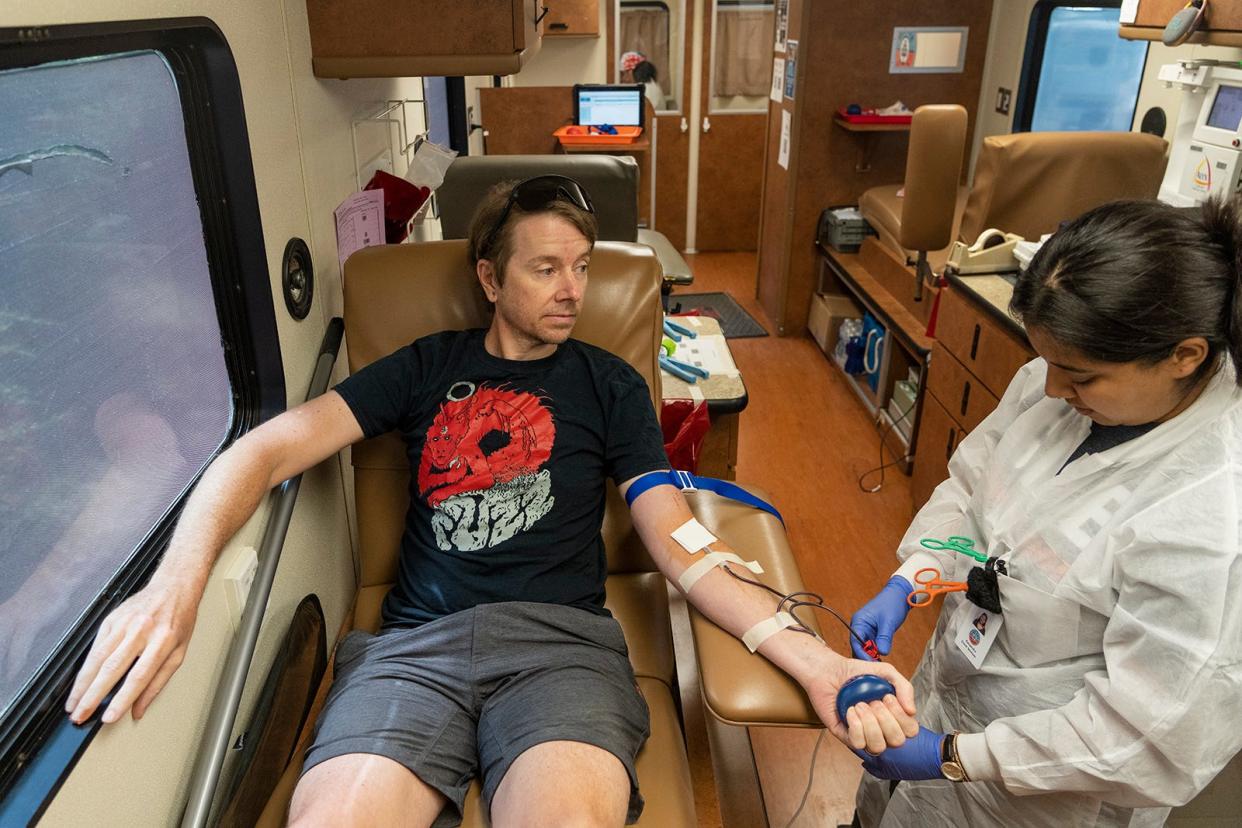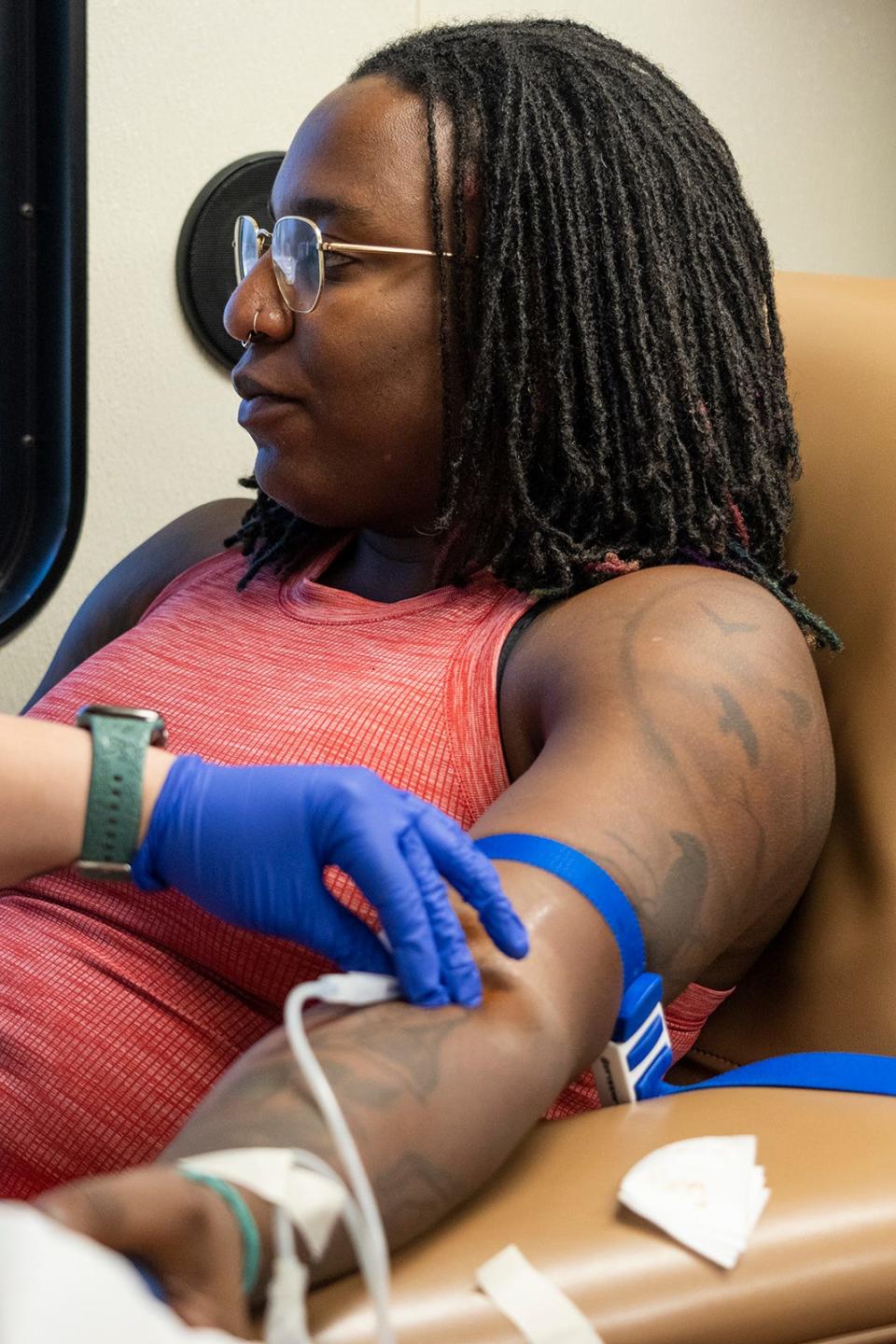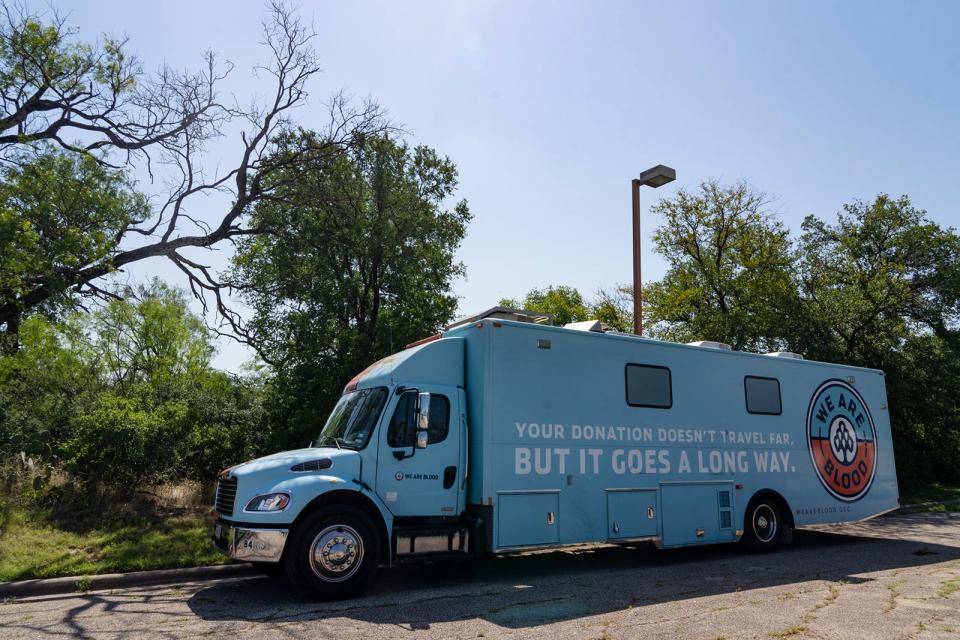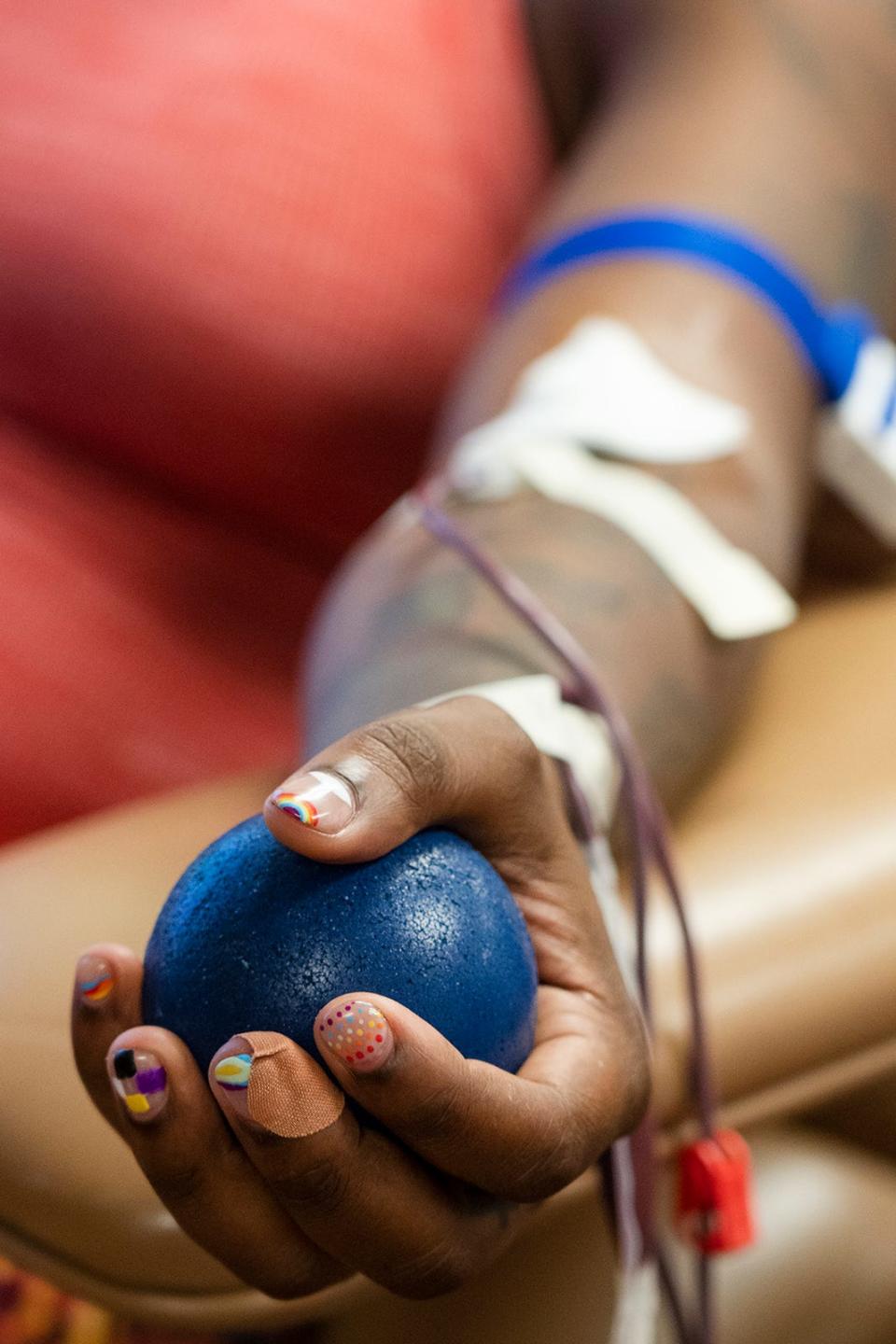Austin's We Are Blood open to more LGBTQ+ donors with changes in guidelines

We Are Blood, Central Texas' community blood bank, plans to open its donor pool to people who have been excluded for decades, an important because of the blood supply shortage in Austin and the region.
This change has evolved since earlier this year when the U.S. Food and Drug Administration released its new draft guidance for public comment. In May, the FDA released final guidance that allowed this change.
Beginning last week, We Are Blood changed its donor questionnaire, based on the FDA guidance, to allow men who have sex with men or women who have sex with men who also have sex with men to donate.
We Are Blood leaders hope the change will lead to more blood donations, after a brutally hot summer caused a decrease in donors who stayed home.
Nick Canedo, vice president of community engagement for We Are Blood, said the initial ban came after the HIV crisis in the 1980s when the CDC estimates about 3,500 people contracted HIV via blood transfusion, mostly before blood started being tested for HIV in 1985.
In 2015, the FDA lifted a lifetime ban on men who have sex with other men. Instead, men were given a one-year deferral. Then in 2020, the FDA made it a three-month deferral. The evolving guidelines also are meant to be more inclusive for the LGBTQ community and donors.

How will sexual history now be handled on the blood donation form?
Instead of singling out men who have sex with other men, the donor form asks questions about past sexual history to all potential donors in the same way: Have they had a new sexual partner or had multiple sexual partners in the last three months? If yes, have they had anal sex? If the answer is yes to the last question, a person cannot give blood for three months. Gender no longer plays a role in the questions.
The reason this question is important is that the risk of spreading HIV is increased with anal sex because the thin lining of the rectum allows for easier transmission, according to the CDC. The three-month waiting period allows for the HIV virus to show up in the testing done on all blood donations.
What other changes have been made?
Anyone taking medication to treat or prevent HIV cannot give. These medications include antiretroviral therapy, pre-exposure prophylaxis and post-exposure prophylaxis. These medications can delay the detection of HIV, the FDA said. While taking these medications might make a person undetectable and unlikely to transmit the infection during sex, the virus can still be in the blood and transmissible in the large volume of blood given in a transfusion, Canedo said.
Canedo said this policy is similar to blood thinners or antibiotics that make you ineligible while you are taking them.
More about PReP: Clinics are losing funding for HIV prevention drugs and screenings. Here's what that means

Will these changes help increase the blood supply?
Countries like the United Kingdom that have changed their policies have seen a slight increase in blood donors, Canedo said.
This summer has been "one of the rougher summers I can remember," Canedo said when it comes to the blood supply.
We Are Blood serves 50 hospitals and medical centers in a 10-county area of Central Texas and has seen less mobile drives and donors as people have traveled or have stayed inside because of the heat, he said.
"It's been a challenge for sure," Canedo said.
We Are Blood has sent notifications to hospitals to conserve blood this summer. It's had to get blood from other community blood banks, including in San Antonio, South Carolina, Kentucky and Illinois to meet the demand. It's also given blood to MD Anderson in Houston and banks in Beaumont, Dallas, San Antonio and Houston when they have had low supply levels.
"The shortage situation is being felt across the country," he said.
We Are Blood especially needs platelets and O-positive and O-negative donors, Canedo said.
Since 2017, the need increased for red blood cells 43%, 62% for platelets at centers served by We Are Blood.
Increased need for blood: As Austin and its surrounding area grows, so does the local need for blood donations

How can I give blood?
If you've previously received a deferral, you must fill out a deferral eligiblity change request form at the We Are Blood website.
You can schedule a donation appointment or find a mobile blood drive at weareblood.org. Donation centers take walk-in appointments at: 3100 W. Slaughter Lane; 2132 N. Mays St., Suite 900, Round Rock; 251 N. Bell Blvd, Suite 111A, Cedar Park; and 4300 N. Lamar Blvd.
This article originally appeared on Austin American-Statesman: Austin blood bank changes donation rules to include more LGBTQ+ donors

